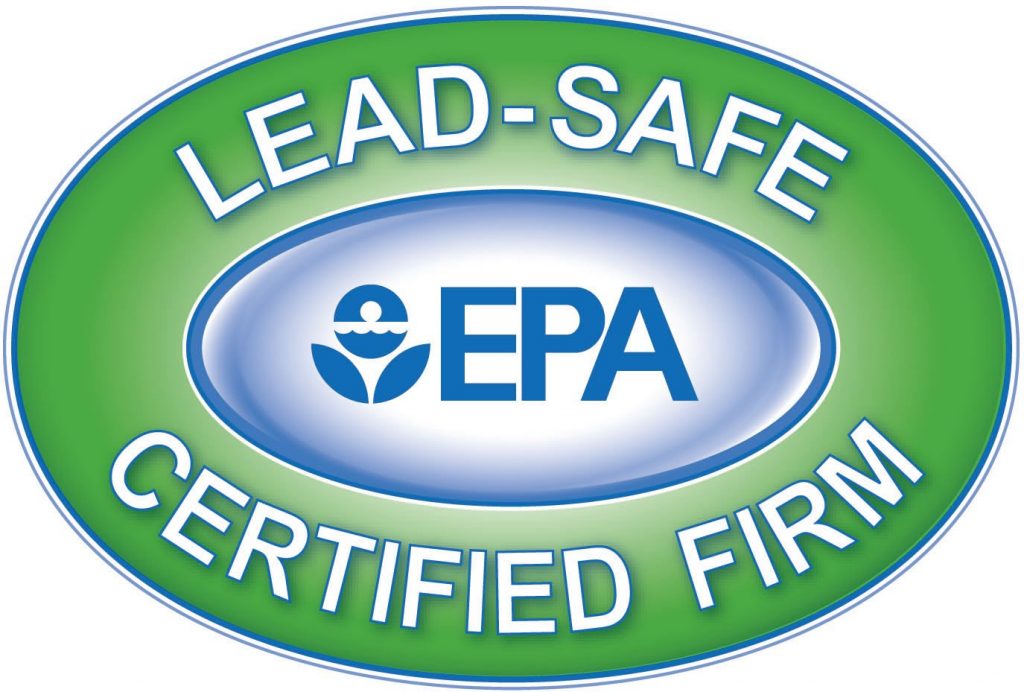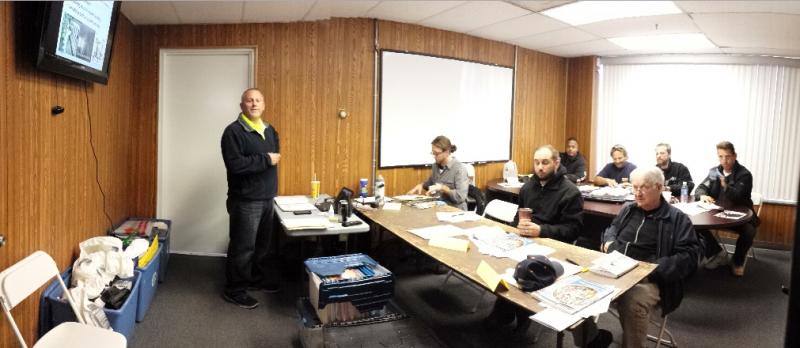Are you doing a water treatment project?
Modernize can pair you with three to four pros in your area, so you can compare options and save time and money.
- You’ve been working on trying to reduce lead in drinking water in Flint. What’s the biggest challenge at this point?
- What exactly has caused the problem?
- What about for people who get water from a well?
- Why do the water lines create such a problem?
- So the problem is primarily from the water lines?
- Is this a problem in other parts of the country? How can people be sure their water is not contaminated with lead or other dangerous chemicals?
- What can homeowners do to reduce their risk of drinking lead-contaminated drinking water?
- When do things get more complicated than that?
- Who should homeowners work with for lead testing and abatement?
- What if someone is getting a home renovation?
- What kind of filtration system do you recommend?
- Instead of installing a whole-house water filtration system, can homeowners just use Brita or Pur filters?
- What if the pipes bringing water into the house need to be changed?
- How can a homeowner find a reliable contractor to test their water supply and replace the pipes if needed?
- Should I review my municipality’s water quality reports?
- Is there anything else people can do to prevent lead from building up in their bodies?
- What about chelation?
Edward G. Wenz, Jr. is a certified lead abatement expert working in the state of Michigan on the Flint drinking water crisis. As a principal in the Contractors Training Institute and the Lead Renovator Training company, he also trains contractors and helps homeowners address lead problems in their home water pipes. He has this advice for anyone who is concerned about lead contamination in drinking water and what options exist for replacing pipes and installing filters.

You’ve been working on trying to reduce lead in drinking water in Flint. What’s the biggest challenge at this point?
There is still lead showing up in the water. We’ve been up there since March or April. We’re testing all the homes. It’s not just the homes on the city water system that have a problem. We’re testing houses that have wells, too. What we’ve learned is that it’s not only water coming through city pipes. People may have lead in their water from the fixtures, like faucets and knobs, in their homes.
Also, as the city has changed out different water lines, they’ve disturbed the system ever more. Sometimes putting in new water lines sends lead levels in the water spiking for a while.
What exactly has caused the problem?
Cities need to add phosphates to their water to keep the pipes from corroding. They also need to add chlorine to keep bacteria from building up. But phosphates actually help bacteria grow, so Flint stopped adding the phosphates and lessened chlorine levels in order to reduce the growth of bacteria. But that then made it easy for the pipes to corrode and leach out the lead. It is what it is: a disaster.
What about for people who get water from a well?
All water can have bacteria in it. And depending on what kind of lines or pipes are used to deliver water from a well to a home, those lines could also corrode. It’s a good idea to get your water tested whether it comes from a well or a city water supply.
Why do the water lines create such a problem?
Service lines that come from a water treatment plant normally are made from cast iron or cement asbestos. The hubs and or repair joints from breaks over the years were repaired with lead solder. Plus, the service line that goes to your house may contain lead, though some are also cast iron or copper.
One problem is that we often don’t know what the lines are made from, since so many cities don’t keep good records.

So the problem is primarily from the water lines?
It’s both the main service line that brings water to the home, and the fixtures in the home itself.
Is this a problem in other parts of the country? How can people be sure their water is not contaminated with lead or other dangerous chemicals?
I personally wouldn’t trust the city testing, because testing doesn’t occur frequently enough or on enough homes. In my town of 30,000 people, the water is only tested for lead every 3 years, and they only test 20 homes. That’s not enough to give me reassurance there’s not lead here. In fact, I’ve had two neighbors who have seen lead levels badly spike in their water, and their houses are only 20 years old.
What can homeowners do to reduce their risk of drinking lead-contaminated drinking water?
For starters, let the water run for a minute or two in the morning to flush out the lines bringing water to the house. We’ve seen lead levels drop significantly after water runs for just a couple of minutes.
Get your water tested. Our company is developing a water lead test kit that you’ll be able to order online and send to us. After we test it, we’ll let you know what we find and give you recommendations on what you should do if anything.
When do things get more complicated than that?
Depending on your lead levels, you may need to change out your water fixtures and put in a whole house filtration system. We recommend not buying fixtures made in China, because they almost always contain more lead than fixtures made in the US. It could cost a couple of thousand bucks. But it will keep your water safe to drink.
Find the Right Contractor for Your water-treatment Project
Whether you’re ready to begin your project now or need some expert advice, our network of contractors are here to help. With a few simple questions, we’ll find the best local professionals for you
Who should homeowners work with for lead testing and abatement?
Find someone who is certified in working with lead. Note that many companies that test for lead can’t do anything to replace fixtures or pipes. So look for a company like ours, which can do it all.
What if someone is getting a home renovation?
EPA is urging contractors to tell homeowners to get their water tested. If you want to keep an old sink and water fixtures, make sure they don’t contain lead in the solder.
What kind of filtration system do you recommend?
Get a dual cartridge filtration system. One filter should specifically filter lead. The other filter should be a carbon filter that extracts out other contaminants and junk. A dual cartridge system will cost around $400 or $500; installation, another $300.
Beware of the solder that’s used on the fixtures. Solder containing lead is still sold, but it’s not supposed to be used on a water system. Make sure your plumber is using lead-free solder.
Instead of installing a whole-house water filtration system, can homeowners just use Brita or Pur filters?
Those small filters do work, but they have a lot of limitations. Hot water kills the filter. The filter change indicator light doesn’t actually tell you when contaminants have built up in the filter—hence, when it’s not working anymore. There’s not a lot of information on how much volume can run through one of those filters before it gets plugged up. They sort of give you a false sense of security.
Big filters can filter as much as 70,000 gallons of water before needing a change.
What if the pipes bringing water into the house need to be changed?
At that point, someone should probably also install a whole house filtration system and get a new hot water tank, plus make sure to change out all the fixtures. It will cost $6,000 – $8,000, but it will be worth if to avoid being lead poisoned. I believe every house in Flint needs this solution.
How can a homeowner find a reliable contractor to test their water supply and replace the pipes if needed?
You can contact our company, or search online for water testing services and ask around to find someone certified in lead inspection and qualified to test for lead in drinking water.
You can also look on your state’s website for links to laboratories that specifically test for lead and are licensed for it. Only certain labs have this expertise, so don’t work with just any lab.
Should I review my municipality’s water quality reports?
All of the municipalities that treat drinking water send you a water bill every month or every three months. They post the lead testing they’ve done, how many houses they tested, and what the levels were. You can review those reports. But I don’t believe them, since they test infrequently and so few houses, so you can look at the reports. But if you’re worried, do your own testing.
Is there anything else people can do to prevent lead from building up in their bodies?
Eat a healthy, low-fat diet. Lead concentrates in fat, so the fattier the diet, the worse it is for lead accumulation. A high protein diet that includes milk and vegetables helps prevent lead build-up.
What about chelation?
Chelation pulls lead out of body. Pills, injections, and eye drops for babies are taken internally; the lead can bind to the compound and will be excreted. The problem is that chelation strips out everything in addition to lead, like calcium and iron. If you have to take chelators, you’ll also have to take calcium supplements and iron pills. The best thing is to start eating well and don’t have more exposure.
Find the Right Contractor for Your water-treatment Project
Whether you’re ready to begin your project now or need some expert advice, our network of contractors are here to help. With a few simple questions, we’ll find the best local professionals for you
Reviews from Real Homeowners
Welcome to Homeowner Resources! We are the Modernize blog. Modernize pairs more than 3 million homeowners a year with pre-vetted contractors in their area. This blog started because we believe homeowners should know everything about their homes, from how their HVAC works to which front door colors they might love. On Homeowner Resources, you can find information on every part of your home, right down to how you can negotiate with contractors to get the best price. Here's more about the blog.
Need a contractor? Learn more about how Modernize finds the right pro for you.




